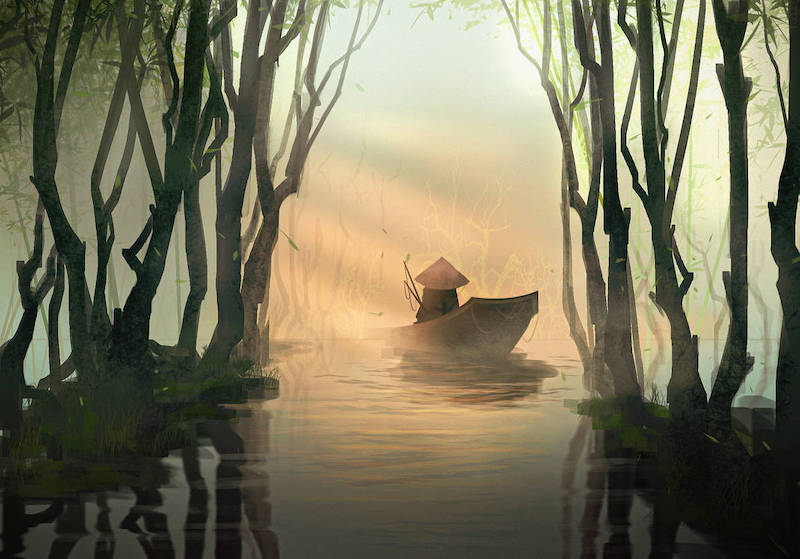VISUAL PROMPT
by Louisa Wilhelm @artstation.com/louisawilhelm

Inspired by this image, begin your story, poem, or descriptive paragraph with the line "As the hazy light filtered through the trees"...
Homeland
As the hazy light filtered through the trees, all I could think about was how stupidly humid it was. The air had began to boil, turning sticky and suffocating, more akin to trying to move through syrup than anything enjoyable. Mosquitos hummed above the stilled water while shadows lurked inches beneath. Mudflats surrounded my boat; I was told some parts were a few feet deep, made pliant by the torrential rain of the night. The trees themselves were nothing I had ever seen before; here, they were crooked, bending jaggedly this way and that, more concerned with growing than growing towards the sky.
My parents grew up in these lands; I had been born here, but moved away too young to remember anything more than punishing heat. I grew up half way across the world in a place of snow and opportunity, as my parents called it, where I went to a small school in a somehow smaller town. We knew everyone from one end to the other, both by name, face, and voice. It was nothing like here. As my parents said, it was nothing like home. I finally understood what they meant by that.
Because I knew they always had so much more to say—how they felt transplanted into that Canadian village, neither accepted up front or as an afterthought, their hearts quietly yearning like uprooted snapdragons for the lands left behind—and how grateful they were for the opportunity. I couldn’t understand their love for this land, but I understood their quiet memory of it. These lands meant nothing to me but everything to them. And now, as the light filtered lazily through the trees, I bear witness to the way the trees grow harmoniously criss-cross, how the mudflats are alive with croaking frogs and stilt-legged birds, how the mosquitos’ humming almost forms a heartbeat, and how the air was warmed so greatly by the sun, it almost felt like a kind-hearted hug. These lands were beautiful. And although not to me, these lands were home.
